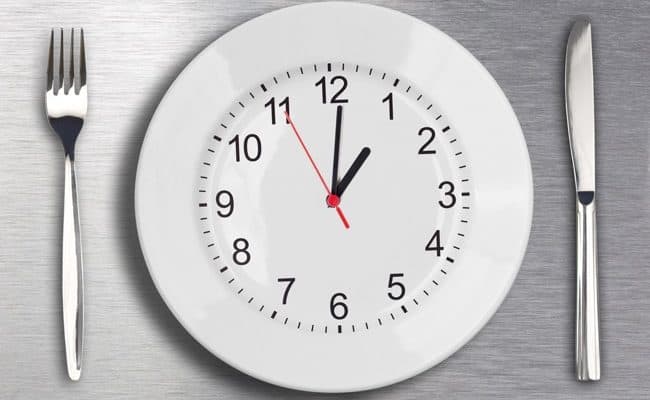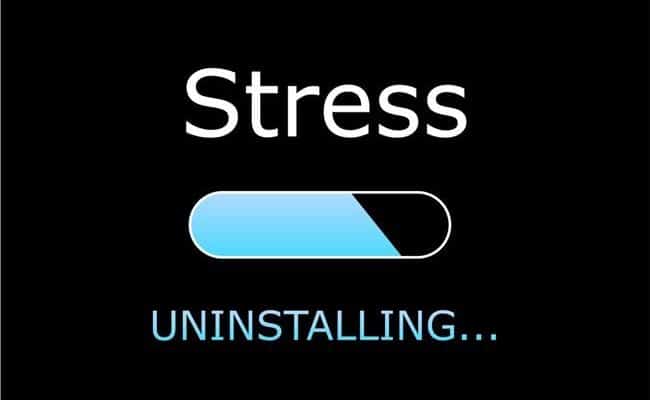
Calorie restriction has been the go to method for weight loss for years. It can often mean feeling hungry most of the time during weight loss and may result in lowering metabolic rate which could make weight loss harder. Can people lose weight with calorie restriction? Of course. However, not everyone has success with this method.
What if you could eat whatever you wanted while trying to lose weight without counting calories? Sounds like an infomercial, right?
Well, this is actually the premise of the intuitive eating plan. The rule of thumb for intuitive eating is eating when you are hungry and stopping when you’re full (not stuffed). There is no counting of calories and no “good” or “bad” foods.
The appeal for intuitive eating is that after someone has tried every other weight loss diet, intuitive eating may be a successful alternative. In fact, a June 2016 New York Post article (1) suggests intuitive eating is for people who have given up on weight loss.
It’s important to remember there are many ways someone can be successful for weight loss. Intuitive eating may work for some people, but as with any plan, it may not be the best fit for everyone.
How does intuitive eating work?
Intuitive eating focuses on listening to your body instead of just staying under a certain calorie limit. It is also designed to heighten awareness of emotions and how they influence eating.
Intuitive eating is meant to be a lifestyle of eating when you are hungry, stopping when you are full and not eating based on emotions.
Calorie restriction focuses on eating only a certain amount of food regardless what your body or mind is telling you. High calorie foods are usually off limits with most weight loss diets.
With intuitive eating, no foods are off limits. The rationale is if foods are not off limits, you don’t feel the need to obsess or binge on them.
Intuitive eating usually doesn’t help people drop unwanted weight fast. If anything, sometimes people may gain some weight at the beginning, but over time gradual, sustained weight loss can occur. Since no foods are off limits, sometimes people can overdue on higher calorie foods at first.
However, because they are not off limits, the novelty wears off. This can help lower the urge to over eat junk food according to proponents of intuitive eating. A healthy, balanced relationship with food is a main outcome and goal for intuitive eating.
What does the research say?
When researchers (2) compared calorie restriction with intuitive eating for weight loss in obese study participants, the calorie restriction group had significantly more weight loss compared to the intuitive eating group after 6 weeks.
Both groups engaged in exercise three times a week and were given instructions for following intended eating pattern.
This study found the calorie restriction group lost more weight consistently throughout the study, but the intuitive eating group had less weight loss at the end of the 6 weeks.
This study suggests compared to calorie restriction, intuitive eating may not be as effective for weight loss. However, the study was only 6 weeks.
Weight loss efforts longer than 6 weeks compared between calorie restriction and intuitive eating may have different results.
When researchers look at eating patterns of people and how it relates to BMI, intuitive eating appears to have a positive role on weight.
A 2014 review article (3) found from research studies intuitive eating is associated with having a lower BMI.
So how does this compare with the study that found intuitive eating didn’t have as much success with weight loss as the calorie restriction group?
It is possible intuitive eating may help more with weight maintenance than weight loss. Following intuitive eating could help resist weight gain.
According to this review article, people who follow an intuitive eating pattern are also more likely to have positive psychological health.
Will it work for you?
Just a quick search for intuitive eating on the internet will bring up some articles boasting praises of intuitive eating as well as some articles saying why it doesn’t work. So far, there is not a lot of evidence to suggest intuitive eating will help you shed pounds quicker than a traditional weight loss diet of lowering calorie intake.
However, over time, following an intuitive eating pattern may be helpful in lowering weight gain.
What can be helpful with intuitive eating is getting back into focus of listening to your body’s cues of eating. This can be a challenging process that takes time.
If you struggle with binge eating or over eating, speak with a medical team about the best approach for you. Intuitive eating can be a helpful guideline, but more accountability and structure may be needed for some.
If getting freedom with your emotions and food is a priority, following an intuitive eating program may be helpful. Instead of counting calories, you track how you are feeling when you eat.
No foods are off limits but instead you eat when you are hungry and stop when you are full. There should be an increased awareness in how your emotions play into eating and how the food type and amount makes you feel afterward.
There are many guidelines and books around intuitive eating which is also sometimes referred to as mindful eating. Some proponents (4) of intuitive eating claim intuitive eating can help you increase awareness about other things like personal relationships, appreciating food, body image issues and energy levels.
If you feel like you have tried many other diets without weight loss success or freedom from emotional eating, many claim intuitive eating could be helpful.
If you have further questions about your weight loss and medical history, speak with a dietitian and your doctor to determine what would be best for your health.











Michelle Whitehill says
I have been on my journey for a year. Lots of failing, but lost weight while failing…(holidays have ruined me and I’m up 5-10lbs based on the day of the week due to water weight). HOWEVER. I am in love with your blog! You’re not leaning towards one particular “cure”, you’re actually providing information that can work for one, and maybe not work for another. Good job!!!
For this particular article I’m torn. I do believe it could work for a person that’s not morbidly obese or has been obese their entire life due to emotional eating. I found out that I am a grazer. I am like a cow. I feel satisfied quickly from food, mere bites! But 30-60 mins later, I am eating again. Cows walk around all day grazing and laying around. That was me! It’s a habit I could freely do at my old job, not this new job. And that’s when the weight shifted and I recognized it. My point in all this, find out what your type of eating is before trying this particular style. It’s not a wrong style, but just wrong for certain types of eaters. I will make it my goal to become a healthier individual and one day capable of being an intuitive eater!
KEEP UP YOUR GREAT ARTICLES! I love them!